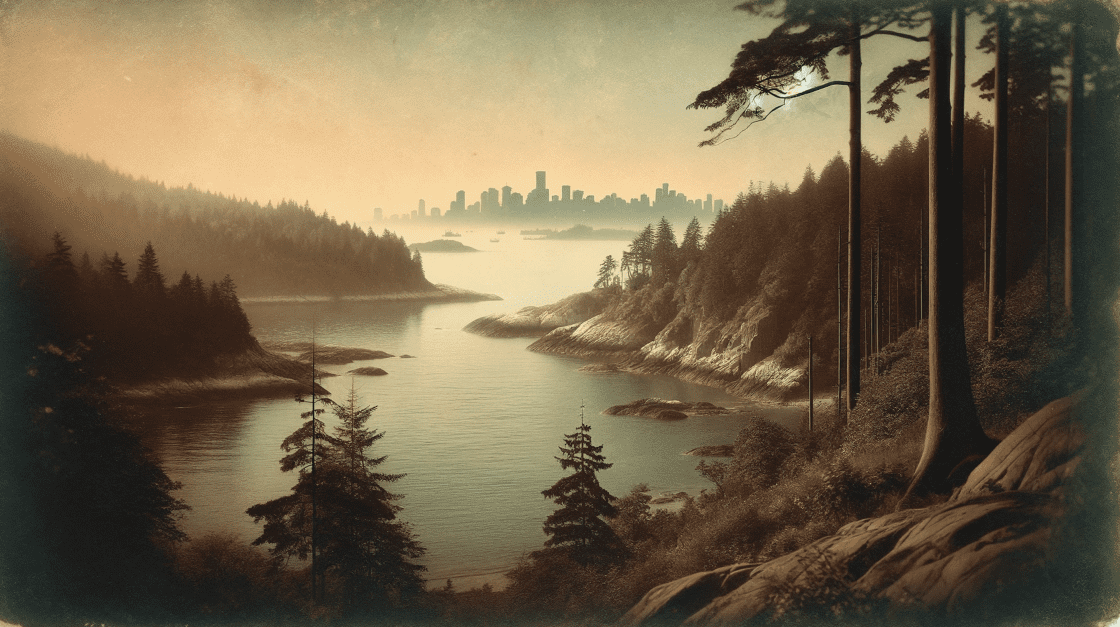The North Shore of Vancouver, encompassing the district of West Vancouver and North Vancouver as well as the City of North Vancouver, is a region rich in history and culture. This article takes a closer look at the key historical dates and events that have shaped these communities, offering a more in-depth exploration of their past and present.
West Vancouver: A Tapestry of History
Foundational Years
- 1792: The exploration by Captain George Vancouver sets the stage for future settlement.
- Early 1900s: Pioneers establish homesteads, and the area becomes known for its natural beauty and resources.
Incorporation and Early Development
- March 15, 1912: The incorporation of West Vancouver marks the beginning of organized governance.
- 1920s: The completion of the Marine Drive and the development of the British Pacific Properties initiate residential growth.
Mid-Century Transformations
- 1938: The opening of the Lions Gate Bridge enhances connectivity with Vancouver.
- 1940s-1950s: The post-war boom leads to increased development and the establishment of community facilities like the West Vancouver Memorial Library.
Cultural and Recreational Flourishing
- 1960s-1970s: The arts scene thrives with the opening of galleries and the establishment of cultural events. Recreational facilities, including the West Vancouver Aquatic Centre, are developed.
Modern Challenges and Achievements
- 1980s-1990s: West Vancouver faces challenges of urban sprawl and works towards sustainable development.
- 2000s-Present: The community focuses on environmental initiatives, cultural inclusivity, and maintaining a high quality of life.
North Vancouver: Industrial Roots
Early Settlement and Industrialization
- 1860s-1870s: The establishment of sawmills and small settlements marks the beginning of North Vancouver’s industrial era.
- 1891: The incorporation of the District of North Vancouver provides a framework for managing the growing area.
Growth and Connectivity
- 1906: The arrival of the Pacific Great Eastern Railway boosts economic growth.
- 1911: The City of North Vancouver is incorporated, focusing on urban development.
Mid-20th Century Developments
- 1930s-1940s: The construction of bridges improves accessibility and fosters community growth.
- 1950s-1960s: Residential neighborhoods expand, and community centers and parks are established.
Cultural Renaissance and Environmental Awareness
- 1970s-1980s: A cultural renaissance occurs with the development of arts and cultural institutions. Environmental awareness grows, leading to conservation efforts.
Revitalization and Future-Oriented Initiatives
- 1990s-2000s: The waterfront undergoes revitalization, and the Shipyards District becomes a hub of economic and cultural activity.
- 2010s-Present: North Vancouver continues to focus on sustainable development, transportation improvements, and community engagement.
A Rich and Diverse History on Vancouver’s North Shore
The histories of West Vancouver and North Vancouver are intertwined with the broader narrative of British Columbia’s development. From their early days of exploration and settlement to their modern focus on sustainability and community, these municipalities have each carved out a unique identity while contributing to the vibrant tapestry of the North Shore. As they move forward, the lessons of the past and the challenges of the present will continue to shape their future.


